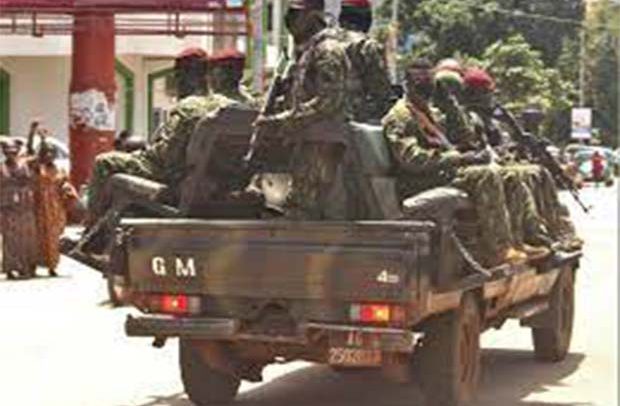We seem to be experiencing an epidemic of coups in Africa. Less than one month after the coup in Niger, soldiers struck in Gabon and removed President Ali Bongo Ondimba, whose family has ruled for 55 years.
Bongo, 64, who took over from his father Omar in 2009, was placed under house arrest, and one of his sons was arrested for treason, as the coup leaders stated.
It is instructive to note that military forces have seized power in five other countries since 2020. We have had coups in Burkina Faso – two coups in eight months, Sudan, Guinea, Mali – two coups in nine months.
Since 1950, there have been 486 military coups worldwide, with Africa experiencing the most, totalling 214, and at least 106 of these were successful.
According to American researchers Jonathan M. Powell and Clayton L. Thyne, almost all of the 54 countries in Africa, approximately 45 of them, have faced at least one attempted coup during this time. It is safe to surmise that Africa is the epicentre of coups in the world, and the reasons are not far-fetched.
After the Gabon coup, the presidents of Cameroon and Rwanda reorganized their armies and retired some generals to forestall any coup attempt.
Some have blamed sit-tight leaders in the continent for the increase in coups.
After the Niger coup, all of a sudden, we started seeing armchair foreign affairs and good governance experts on social media. It got to a point where some individuals on social media were calling for a coup in Nigeria. All of a sudden, people are idealizing military rule as the best thing since sliced bread.
The truth is, no matter how imperfect our democracy is, military rule is never an option. Yes, our democracy is flawed, and politicians rig themselves into power, but there are still some positives. Besides, the military is no better than the politicians.
The question is, are all the countries being ruled by the military since 2020 faring any better? Have they delivered utopia to their citizens?
Also, those calling for military rule do not know what military rule looks like. Social media would be regulated or banned, and all those overnight influencers would not have a job anymore. People who have made abusing others a favourite pastime on social media will realize they will not have that luxury in a military regime.
Most times when soldiers take over, we hear the same old story of how corrupt the politicians are and how they promise to return the country to civilian rule in a year. In most cases, that is not the reality, and in the end, they become more corrupt than the civilians.
The misguided youths calling for military coups should know that military rule is not a guarantee of good governance.
No doubt, politicians in the continent need to start playing by the rules and respecting constitutional term limits. Two terms of four years are more than enough for any president to make their mark. The era of sit-tight presidents should be consigned to the dustbin of history.
Another reason why our politicians in Nigeria and Africa do not adhere to the rules is due to our weak institutions. We need to start building robust institutions in Africa to withstand the cunning and deviant behaviour of some of our politicians.
As we navigate this turbulent sea of political unrest in Africa, it’s imperative to remember that the path to progress is not paved with military boots. While our democracies may be imperfect and our politicians flawed, we must resist the siren call of military rule.
The misguided calls for coups only serve to undermine the hard-fought gains of our nations. Imagine a world where social media is silenced, and freedom of speech is a distant memory. Is that the utopia we yearn for?
Instead of longing for quick fixes, let us demand accountability from our leaders and insist they play by the rules. Term limits exist for a reason – to prevent the grip of power from becoming a stranglehold.
To truly build a brighter future for Africa, we must strengthen our institutions, making them robust and resilient. Only then can we withstand the whims of politicians who seek to bend the rules to their advantage.
So, as we confront these challenging times, let us remember that democracy, with all its flaws, is still our best shot at a better tomorrow. Let us cherish our freedoms, safeguard our institutions, and work together to create the Africa we envision – a continent where prosperity and democracy flourish hand in hand.
By Jonathan Nda-Isaiah


